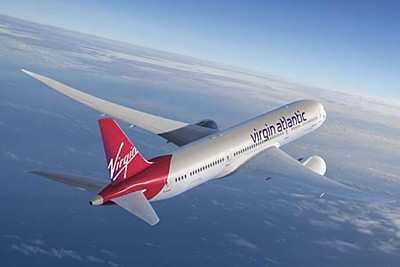My God, It’s Full of …
A legal storm is brewing in California—a state that has doggedly pursued and deservedly earned a reputation for breathtaking short-sightedness.

High taxes, endless regulations, massive litigation, rising crime, increasing homelessness, and a political prioritization of social and environmental policies over practical business solutions have precipitated an exodus of small and large companies from the Golden State.
California’s latest target is the airline industry. The state seeks to require its onerous employee meal-and-rest-break laws to apply to all California flight attendants—even if their routes are entirely outside of California. The proposed measure would enable California legislators to dictate what goes on far beyond the state’s borders.
That flight attendants are hard-working professionals vital to business, recreation, and even combatting crimes such as human trafficking is an axiomatic truth. Airlines, therefore, should be encouraged to support the physical and mental health of its cabin crews. Nevertheless, nationwide application of California’s laws would so egregiously drive up the cost of air-travel that the tremendous benefits of airline deregulation would be undone.

In 1978, Congress passed the Airline Deregulation Act, which freed the industry from federal micromanagement—thereby halving the cost of flying.
In addition to facilitating increased personal connectivity with family, friends, customers, and clients, deregulation generated trillions of dollars in economic growth for state and local economies.
Regrettably, the 9th Circuit Court of Appeals—by ruling that California’s meal-and-rest-break laws apply to Virgin America’s flight attendants who pass through California—has imperiled deregulation’s rich legacy.
The 9th Circuit’s decision undermines the very core of the Airline Deregulation Act, which overrides any state law that would, if applied to airlines, significantly affect prices, routes, and services. The act, passed by Congress and enforced for decades, specifically prohibits the very conduct California is attempting to foist on the whole of America.
Even the 9th Circuit could not deny that California’s indulgent laws would impose significant burdens on airlines. The court—in an unconscionable instance of judicial legerdemain—sidestepped the requirements of the Airline Deregulation Act by finding that airlines could hire additional flight crews.
The U.S. Justice Department—in an uncharacteristic fit of circumspection—opposed the court’s ruling, arguing that merely hiring additional crew-members is not feasible. Federal law bars such a solution—insomuch as FAA-mandated, inflight safety responsibilities preclude flight attendants from repeatedly and protractedly going off-duty.
Additionally, staffing every flight with multiple teams of flight attendants would itself constitute a significant burden on airlines—which would contemporaneously bear the expense of training and paying redundant flight attendants and lose capacity otherwise assignable to revenue passengers.
In the absence of additional staff, airlines would be obligated to offer existing cabin-crews breaks between flights—thereby disrupting tightly choreographed crew schedules and engendering worsening flight delays.
What’s more, if the 9th Circuit’s decision stands, airlines will be constrained by similar laws in New York, Massachusetts, Oregon, Illinois, Washington, and other, restriction-happy states. A patchwork of 51 independent legal regimes is apt to emerge, each imposing disparate restrictions on airlines. The scenario is precisely what the Airline Deregulation Act was meant to prevent.
Virgin America—prudently—is seeking Supreme Court review of the 9th Circuit’s inexplicable ruling.

Remarkably, there’s a final twist to this harrowing story.
Biden’s DOJ, in recent months, has reversed its position on the 9th Circuit’s ruling, and now insists the Supreme Court should not review the case.
In keeping with prevailing federal convention, the The DOJ has articulated no reason for its schizoid mutability—excepting a dubious, rambling sophism that posits: perhaps a flight attendant could be “off-duty” for purposes of California law but “on duty” for purposes of federal law.
California’s compulsion to ruin its own economy is unfortunate. The Golden State, however, has a history of attempting to export its policy decisions to the rest of America.
Empowering California to dictate when and how flight-crews operate in Utah, Indiana, North Dakota, or any other U.S. state seems patently absurd, and fiscally suicidal .
Airlines provide tremendous economic benefits. The 9th Circuit’s decision threatens to reimpose the bureaucracy, red-tape, and overreach that stifled economic growth prior to deregulation. Should the Supreme Court fail to reverse the lower court’s feat of judiciary fatuity, Americans will soon count skyrocketing travel costs among the many and varied woes heaped upon them by the federal government.
 Airbus Racer Helicopter Demonstrator First Flight Part of Clean Sky 2 Initiative
Airbus Racer Helicopter Demonstrator First Flight Part of Clean Sky 2 Initiative Diamond's Electric DA40 Finds Fans at Dübendorf
Diamond's Electric DA40 Finds Fans at Dübendorf ANN's Daily Aero-Term (04.23.24): Line Up And Wait (LUAW)
ANN's Daily Aero-Term (04.23.24): Line Up And Wait (LUAW) NTSB Final Report: Extra Flugzeugbau GMBH EA300/L
NTSB Final Report: Extra Flugzeugbau GMBH EA300/L Classic Aero-TV: 'Never Give Up' - Advice From Two of FedEx's Female Captains
Classic Aero-TV: 'Never Give Up' - Advice From Two of FedEx's Female Captains




